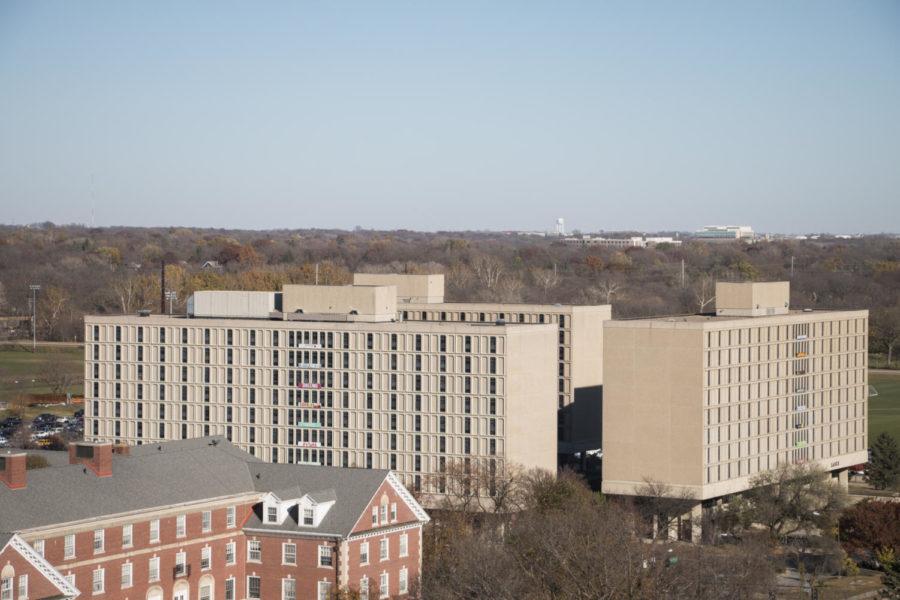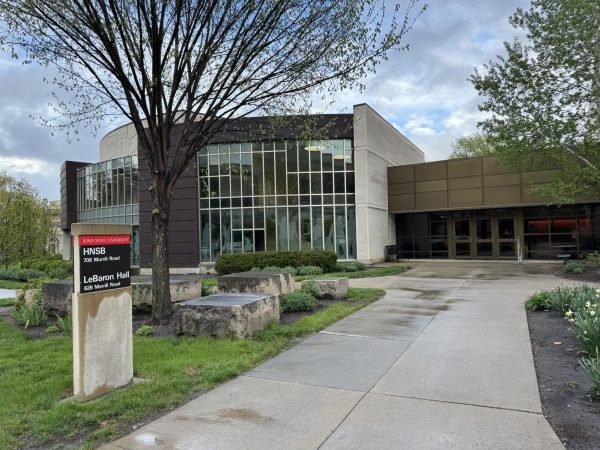Couple has roots in change at Iowa State
February 12, 2007
The study of history, be it in a crowded lecture or in the pages of a book, can often probe us with a question: Do people change?
After meeting Deland and Evie Myers, professor of food science and human nutrition, and associate director of the equal opportunity and diversity office, respectively, one could be tempted to hope that communities, and even people, do in fact change.
Take Jack Trice Stadium, for example.
The legacy of Jack Trice might never have been preserved as well as it had if not for the students, Evie among them, who marched to urge Iowa State to name the stadium after Jack Trice.
“I can’t say that I felt discrimination [as a student at Iowa State],” Evie paused. “I mean, there were things that we would . march for – we wanted the stadium to be named Jack Trice. It didn’t while we were in school. It was neat to get back here and see that they finally did it.”
Or take the dorms – yes, the dorms.
Approximately 100 years ago, George Washington Carver lived in Ames and was vitally involved at Iowa State, but he was not allowed to live in the dorms because of his skin color.
Earlier in the conversation, Evie casually mentioned the dorms as one of the many places at Iowa State where she felt welcomed.
“No one in my family had gone to college before,” she said, adding to some of Deland’s comments about Iowa State being a welcoming environment.
“They were very supportive,” she said.
Deland said he thinks that supportiveness still goes on today, evidenced in the rededication of the Black Cultural Center this week.
“The Black Cultural Center was a place for us; it was a home away from home,” he said.
“It really was,” Evie added.
George Jackson, assistant dean of the graduate college, knew Evie when she was an undergraduate at Iowa State and met Deland through Evie. At the time, Jackson was head of Minority Student Affairs – essentially, he had Evie’s job.
“I always knew her as a very capable, intelligent and smart young lady,” Jackson said of Evie.
Today, Deland and Evie are leaders in two different departments at Iowa State, although they both work for the benefit of individual students and the university.
Similarly to how their abilities are expressed differently now, the two came to Iowa State from very different backgrounds.
Deland was an undergraduate student in biology at the University of Missouri-Kansas City. He said his interests originally were in medical school.
“Someone told me about graduate school,” he said. “What I guess attracted me to Iowa State was that all the schools that I applied to, they all wrote me letters. They told me they liked my background and they liked my GPA and so forth, but Iowa State called me.”
Deland said Dr. Bill Marian, the department chair of what was then food technology, called him during a class at the University of Missouri.
Deland said it was this same “supportive environment for students” that eventually drew him back to Iowa State as a faculty member.
Evie, who is originally from Sioux City, found the same situation on campus as a first-generation college student.
A college recruiter came to her hometown, and he continued to reach out to her as other colleges began to send mailings to her door.
“I could always go back to him, my admissions counselor,” Evie said. “He’d always: ‘Oh, you should do this, or try this – or get a tutor for that chemistry class,'” she said, laughing and looking at her husband.
That tutor just so happened to be Deland Myers, who soon became her friend.
Their friendship, Deland said, was one of the most important factors of what became a closer relationship.
“Sometimes, in dating relationships, you kind of hide things, [such as] ‘If I say that then they won’t like me.’ But we shared. We’d share our good and our bad,” he said.
After a short pause, Evie added that another thing that allowed her to know Deland was the one for her was that she’d seen him at church.
“I knew he was a Christian man, and I wanted to marry someone who was a Christian,” she said.
“I just knew – God said, ‘He’s the one,'” Evie said with a laugh.
Another interesting point in their relationship began during Black History Month when they were both in school.
“We’d both gone to a Black History Month speaker,” Evie said. He was a psychiatrist and he spoke in Carver Hall, she said.
He put forth a challenge to his audience: If every student would adopt a black child who needed a home after graduation, it would help blacks and the make the world a better place.
“He was giving numbers about how many children needed a home,” Evie said.
To adopt “was always in my heart,” Evie said. She kept the speaker’s challenge in mind.
“[Deland] had heard [the challenge] too, but we were in different parts of Carver Hall – you know what I’m saying? We didn’t know our lives would come together,” Evie said.
When she and Deland started dating, that was one of the things they talked about.
“He said, ‘Yeah, I was thinking about it, too,'” Evie said. “So when we first got married we adopted a little boy that was six-years-old, to make the world better.”
Deland and Evie went on to have two of their own children. Their adopted son, Corey, is now 28 and lives in Sioux City. Latisha, 22, attends the University of Iowa for nursing.
“I know,” Evie said. “But it’s nursing. She’s going to school for nursing. She’s a smart girl.”
Their son Deland Myers II is 16 and attends Ames High School – as an honor student, Evie said pointedly.
Also with the aim of “making the world better,” Deland and Evie started a college group called Connect.
Evie began, “It’s connecting college students .”
“. to the community,” finished Deland.
People in the community hear about Connect through Deland and Evie’s church, and kids who need help reading come to campus on Thursday evenings to be tutored by college students.
“That’s their community service,” Evie said.
Clearly, Deland and Evie are interested in continuing the “supportive environment” they found at Iowa State in the beginning of their relationship with the university.
“Iowa State has been a great place for us,” Deland said. “Academically, professionally, spiritually – we grew spiritually here – and personally,” he said.
















